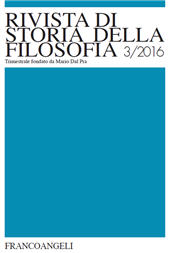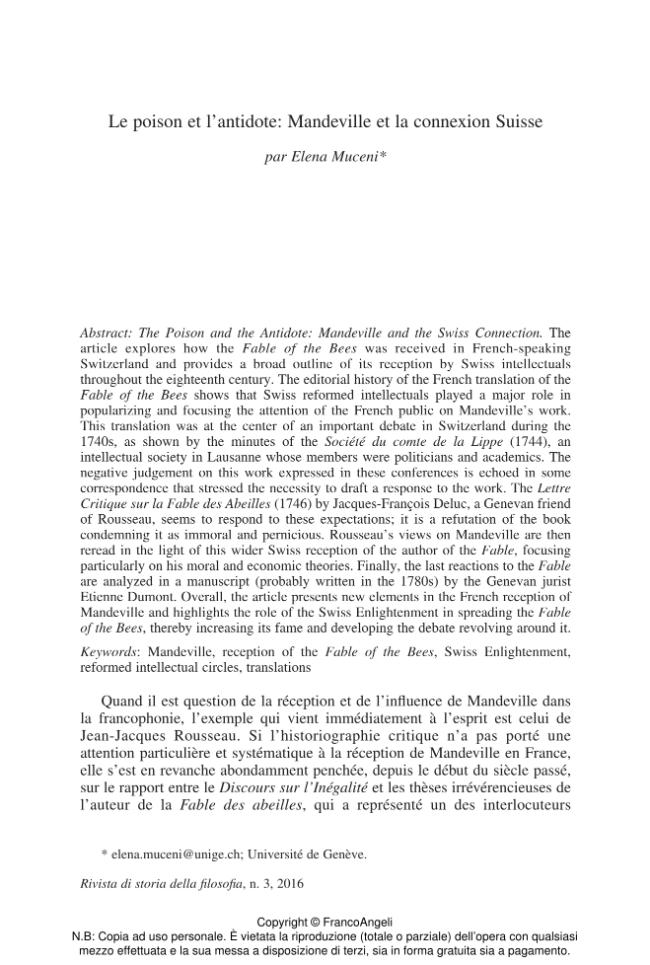Le poison et l'antidote : Mandeville et la connexion Suisse
453-473 p.
The article explores how the Fable of the Bees was received in French-speaking Switzerland and provides a broad outline of its reception by Swiss intellectuals throughout the eighteenth century. The editorial history of the French translation of the Fable of the Bees shows that Swiss reformed intellectuals played a major role in popularizing and focusing the attention of the French public on Mandeville's work. This translation was at the center of an important debate in Switzerland during the 1740s, as shown by the minutes of the Société du comte de la Lippe (1744), an intellectual society in Lausanne whose members were politicians and academics. The negative judgement on this work expressed in these conferences is echoed in some correspondence that stressed the necessity to draft a response to the work. The Lettre Critique sur la Fable des Abeilles (1746) by Jacques-François Deluc, a Genevan friend of Rousseau, seems to respond to these expectations; it is a refutation of the book condemning it as immoral an
d pernicious. Rousseau's views on Mandeville are then reread in the light of this wider Swiss reception of the author of the Fable, focusing particularly on his moral and economic theories. Finally, the last reactions to the Fable are analyzed in a manuscript (probably written in the 1780s) by the Genevan jurist Etienne Dumont. Overall, the article presents new elements in the French reception of Mandeville and highlights the role of the Swiss Enlightenment in spreading the Fable of the Bees, thereby increasing its fame and developing the debate revolving around it.
Forma parte de
Rivista di storia della filosofia : LXXI, 3, 2016-
Artículos del mismo número (disponibles individualmente)
-
Información
Código DOI: 10.3280/SF2016-003004
ISSN: 1972-5558
MATERIAS
KEYWORDS
- Mandeville, reception of the Fable of the Bees, Swiss Enlightenment, reformed intellectual circles, translations



